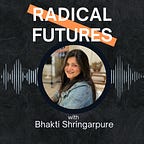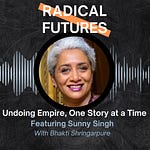“If you want to claim Fanon, do something: Act," says Olivier, the son of Frantz and Josie Fanon, in an interview commemorating the centenary of his revolutionary father’s birth. Full essay here.
Frantz Fanon, psychiatrist, scholar and revolutionary, would have turned 100 years old this year had his life not been cut short by leukemia at the age of 36. By then, Olivier Fanon, the son of Frantz and Josie Fanon, had already spent his childhood in Algeria, Tunisia, Ghana and other places where his parents were active participants in the anti-colonial struggle for Algerian independence. He was five years old when his father had a serious relapse and was flown to the US for more advanced treatment, and where he passed away.
Today, 64 years later, Olivier is a living embodiment and vocal defendant of his parents’ anticolonial ideas, their fierce loyalty to Algeria, and their searing critique of France, despite Olivier’s choice to live a quiet life outside of Paris.
Olivier reflects with some heaviness on the 100th anniversary of his father’s birth, remembering him as a man who had “a short but intensive life.” Even though 100 represents a long passage of time, Olivier says that for him, “Fanon is alive every day, because I was brought up in the memory of my father, which was kept alive by my mother after my father's death.”
Perhaps inadvertently, the conversation becomes Olivier’s love letter to his mother, Josie, who guarded her husband’s legacy with a ferocity, and herself lived her husband’s anticolonial ideas. Frantz and Josie were companions in life and work, and they were not simply “contemplators or historians of the revolution, they were actors in the revolution.”
“My mother was a moudjahida,” Olivier declares. And after Algeria’s independence, Josie chose to renounce French citizenship and made her life in Algiers with her son. More importantly, Josie blazed a trail of her own as a prolific journalist who reported on political movements and upheavals in Haiti, South Africa, Vietnam and Iran.
Olivier and I spoke about his mother’s solidarity with Palestine. In 1967, Josie sent a telegram from Algiers to Paris, to the publisher of Les Damnés de la Terre, asking them to remove Jean-Paul Sartre's preface from future editions of the book. Like several other French intellectuals, Sartre had taken a pro-Zionist stance and signed a manifesto in support of Israel during the Six-Day War. For Olivier, it is a plain illustration of his mother’s steely political will. He called it a Josie trademark: “She's not into nuance, she's not into discussion, she's not into compromise, she's not into diplomacy.” She insisted on swift and politically charged action.
This year, even as his globally influential father turns 100 years old, France continues to snub his legacy, and perhaps even actively seeks to bury it. Yet, Fanon seems to be everywhere. As the genocidal war on Palestinians continues into a third year, Fanon’s words and ideas are evoked again and again.
I ask him about the challenges of preserving his father’s fraught but important legacy. He is clear about what he has been tasked with, and believes that reading and rereading Fanon is urgent in 2025, especially for the sake of empowering liberation movements in Palestine and Western Sahara. Unsurprisingly, he has been plagued with invitations for talks and conferences to commemorate his father’s centenary. But talking and having fancy receptions is not enough, Olivier says. “If you want to claim Fanon, do something. Act.”
Further reading:
Frantz Fanon, a biography by David Macey (2000) https://www.versobooks.com/products/2272-frantz-fanon
“Josie Fanon and her fidelity to Palestinian liberation” by Jessica Breakey: https://www.versobooks.com/blogs/news/josie-fanon-and-her-fidelity-to-palestinian-liberation
Fanon Hier, Aujourd'hui (film). Directed by Hassane Mezine (2018)
Fanon. (film) Directed by Jean-Claude Barny (2025)
Chroniques fidèles survenues au siècle dernier à l'hôpital Blida-Joinville au temps où Dr Frantz Fanon était chef de la cinquième division entre 1953 et 1956. (film)Directed by Abdenour Zahzah (2024).
Credits:
Production: Pauline Bigotte
Research: Bhakti Shringarpure & Greg Pierrot
Editing: Didier David Moutou
Title Music: "Cottonstorm" by Bayern Boom Beat












